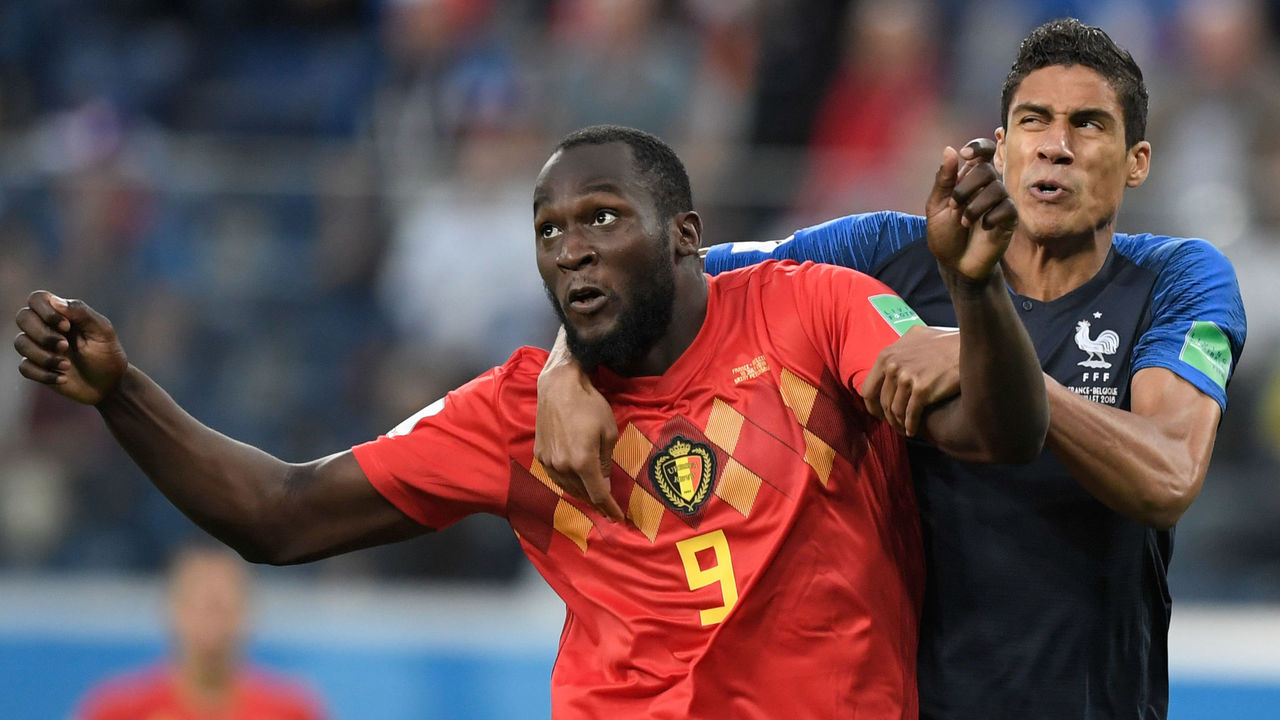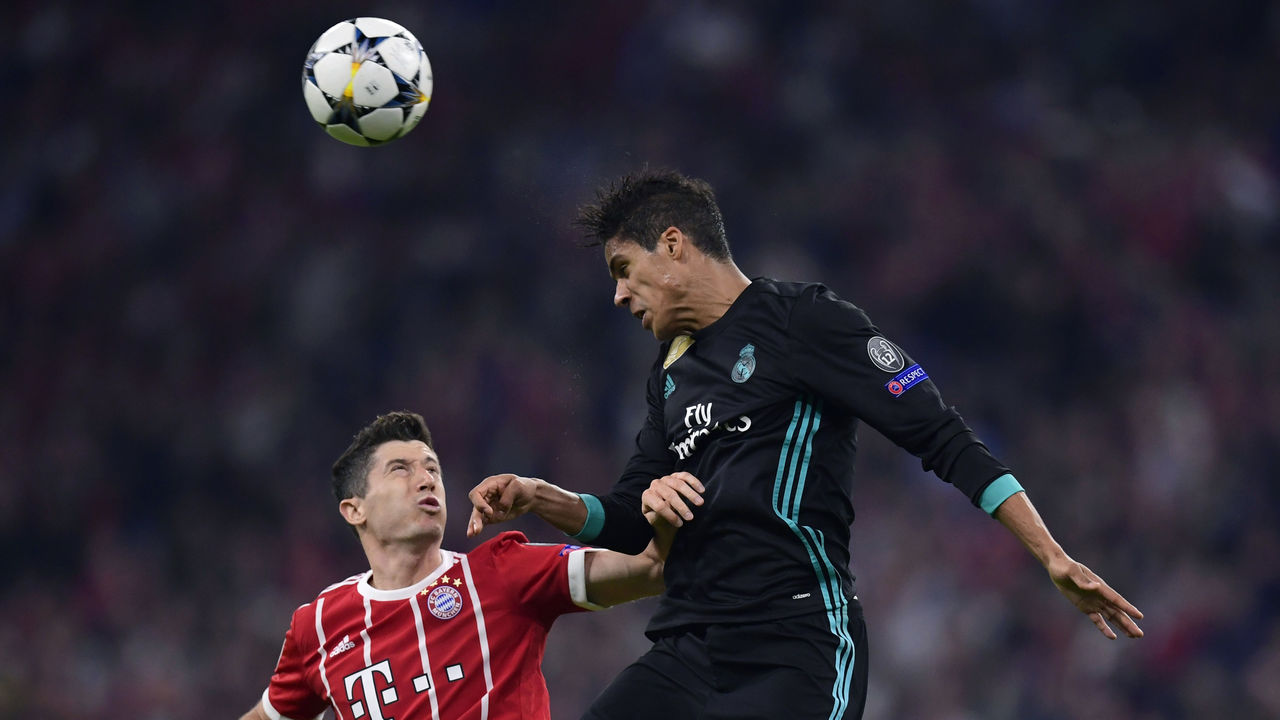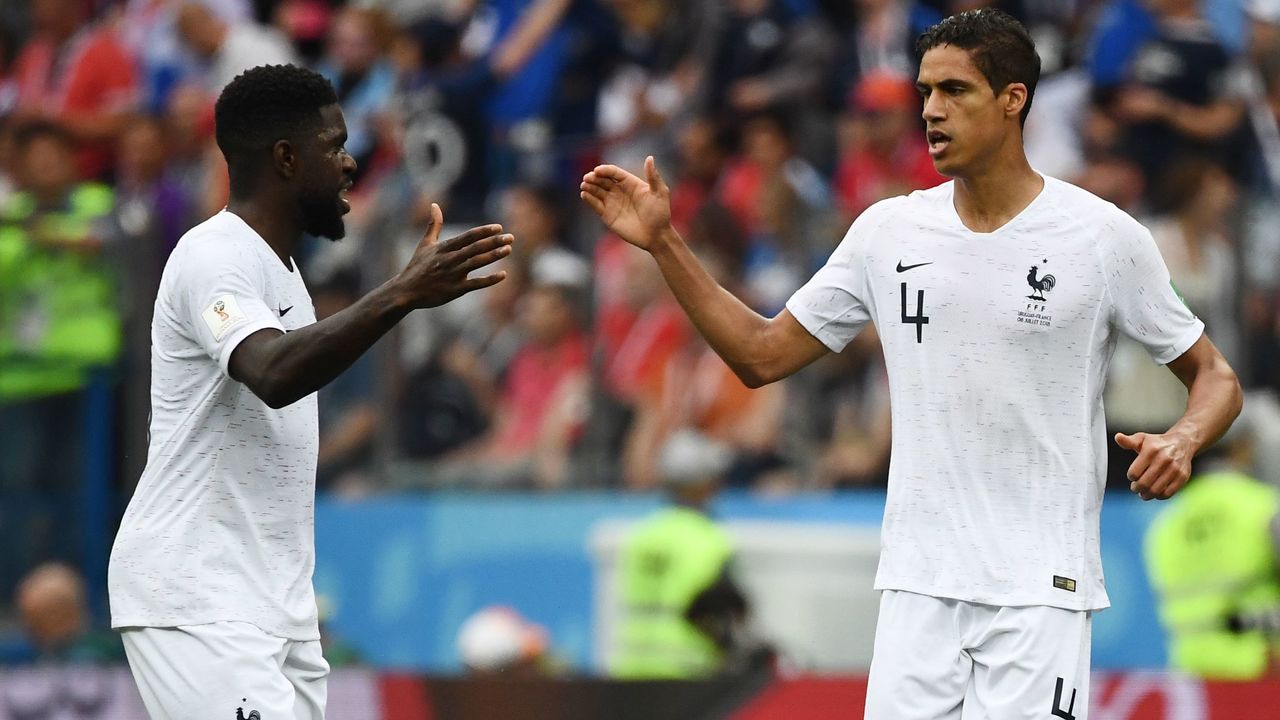Road to Moscow: How Varane emerged as France's quiet leader
Raphael Varane has achieved more at 25 years old than most do in a lifetime of football. Not even the great Paolo Maldini, playing in that legendary AC Milan side, won as much by his mid-20s.
Not that there's fanfare about it. Varane, whose courteousness off the pitch matches his coolness on it, has quietly become a protagonist for club and country. For Real Madrid, he's the calm counterpoint to Sergio Ramos' snarl and bite, and for France, he's emerged as a leader by example.
"I'm not one of the most talked about, but when the going gets tough I try to set a precedent so that the group can count on me," the Frenchman said earlier this year.
That understated confidence guided Los Blancos to three consecutive Champions League titles and, more importantly, Les Bleus to Sunday's World Cup final. He has dominated in virtually every department, winning aerial duels and tackles with pinpoint precision. It's those defensive actions, as sure as clockwork, that allow his teammates to play with greater comfort.
He's just as capable marshalling the back four as he is playing from the back, built in the mould of a modern-day defender. After four European titles, two La Liga crowns, and a dominant showing at the 2018 World Cup, he has reached the pinnacle of his position.

Laszlo Boloni, who coached Varane in his formative years, would have guessed as much. Varane made his debut as a 17-year-old at Lens and captained his country at 21, becoming the youngest to do so since 1910. But those first few months in northern France were crucial. Boloni, who also facilitated Cristiano Ronaldo's rise at Sporting CP, likened Varane's intelligence and technique to the Portuguese, and did not hesitate to chart his path to the top.
He dealt with it all in stride. As Lens suffered relegation to Ligue 2, he drew admiring glances from the likes of Manchester United. It said everything that Varane was entrusted with significant minutes at such a crucial stage of the season.
"Even if Lens had stayed in Ligue 1," said Lens president Gervais Martel, "Raphael Varane would have left because he is a phenomenon."
Nothing fazed Varane, not United's interest nor a direct phone call from Zinedine Zidane. Then an advisor for Madrid, Zidane contacted Varane with an offer. But it arrived just as he was preparing for his final exams, so Varane asked Zidane if he could call back another time.
Imagine that.
Varane eventually said yes, sealing the move to the Santiago Bernabeu in 2011 for a reported €10 million.
The first season was a struggle - he made just seven starts in La Liga - but an injury to Pepe and suspension to Ramos in January 2013 gave Varane his chance. Of course, he seized it.
It was a performance against Barcelona that Aitor Karanka, then Jose Mourinho's assistant at Madrid, described as "perfect," his first El Clasico no less. El Pais ran the headline, "Barca can't handle Varane." He did a bit of everything in those 90 minutes, sprinting from outside the box to clear off the line, dispossessing Cesc Fabregas on the break, and outmuscling Lionel Messi before scoring an important equaliser. He did that all without committing a single foul.

The big interviews followed, the magazines and newspapers called his name as Varane became a fixture in Madrid's starting lineup. Carrying the same gravitas as Zidane during his playing career, Varane said all the right things. On the pitch, there was little need to shout because he had exercised near-total control of the situation.
There were growing pains in the process - Varane was exposed by Mats Hummels in France's quarter-final defeat to Germany at the 2014 World Cup - but never a succession of blunders. Only injuries hampered his progress.
If anything, he has learned from the few mistakes he has made, found the courage to take more risks, and become a reliable player in tense moments. The suggestion that he's "too nice," as French legend Bixente Lizarazu posited before the tournament, is now moot.
"He's evolved," French teammate Blaise Matuidi recently said. "His stature in the locker room has grown and he's passed the test on the pitch. It is much more obvious and it helps us enormously."
It can be argued that Varane has enjoyed the best World Cup of any defender since Fabio Cannavaro in 2006, not just because of his defensive contributions - he has made the second-most clearances in Russia - but because of his serenity. Much of this French team walks with Varane's silent strut, confident in their abilities but without arrogance. Samuel Umtiti is a case in point: a player who has become a calmer version of himself, taking more time on the ball because he knows he has Varane beside him.

In a few weeks, they have shown they can be the Marcel Desailly and Laurent Blanc of their generation.
Only Argentina has cut France open in Russia, and that match was a wild aberration. France didn't concede a goal from open play in any of its other five matches, which is a testament to Varane's orderly conduct at the back. He's chased down ball carriers and put himself in the perfect position to intercept passes. He then scored the header that won France's quarter-final, and muzzled Romelu Lukaku in the semi-final days later.
Sunday's final in Moscow will provide the final test in a short career full of them. He has aced every one thus far.
(Photos courtesy: Getty Images)